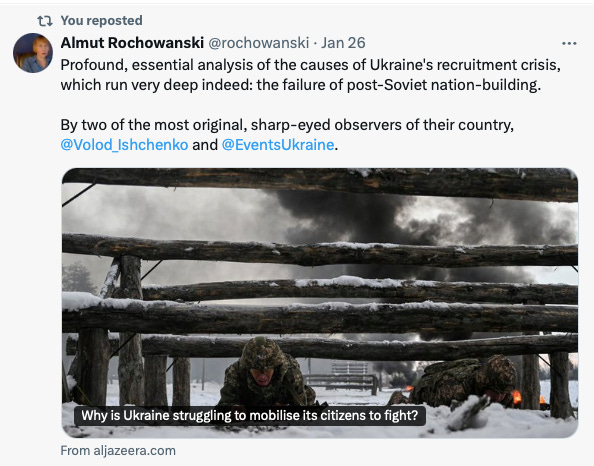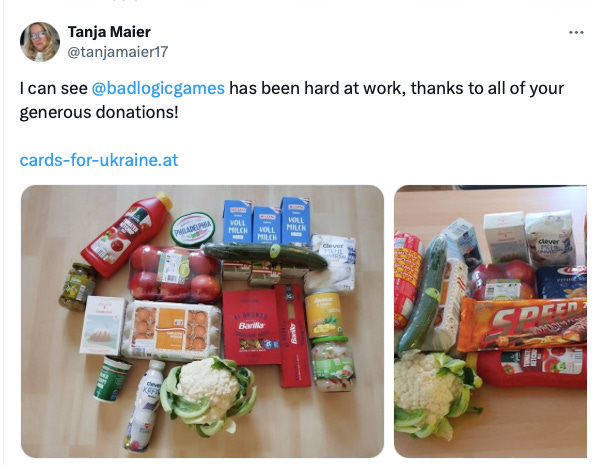Tables turning
As America and much of the EU move away from liberal democratic values, new generations in less affluent countries are trying to change things in their own countries from the ground up.
I avoid writing about the Balkans for a million reasons someone trained in Freud could probably explain with much more eloquence than me. However, today I feel compelled to give it a go. With a big, big caveat: I have no firsthand knowledge. I am only sharing with you the thoughts that come into my head as I consume information and images that come across my screen. I am not reading fluently. I am not speaking fluently. See the comment about Freud above as to the origins of that. But having blood ties, I feel like more than an outsider and less than an insider. Classic third culture “kid”, I suppose, except my parental unit decided not to teach me the language when I was a kid, because we were in America, and America was the goal. It was the 80s, Reagan was president, you get the idea. We had already reached the promised land. As a college student, I learned Russian instead. Close enough, or not at all.
I have been following with a certain amazement the student (and now more broadly civil society) protests in Serbia (see this video from Novi Sad today), a country which has been through so much and has now enjoyed a period of relative stability in an economic sense, something they did not experience for decades, but this came at the cost of, ahem, shall we say, liberal democratic values. Serbia’s government continues a very modern version of the old Yugoslav way: cater to both sides and take what you can from each. It courts the EU, saying all the right things, making the right details to keep Europe happy (key word here is lithium mining), all while keeping Russia still friendly (the populist lore about Slavic Orthodox brothers…I wrote many a college paper on this subject, fascinated if it was really true that big Russia always came to little Serbia’s rescue. Spoiler: only when it suited Russia’s interests. Add in China to the mix, which arrived as an early investor during the 1990s when Serbia was persona non-grata. Economically speaking, the country has done ok, especially considering it is still not an EU member. Politics, though, are another matter entirely.
Again, I feel strange making sweeping generalisations but it feels important to set the stage. My very uninformed opinion built from a few trips (but never for long) and consuming a tiny bit of media and TV/film is that the Venn diagram of politics/business/sophisticated, large volume drug money in the Balkans (meaning beyond Serbia’s borders, too) is a lot of overlapping circles. This week, a report was published by a team of independent journalists in Serbia (KRIK) illustrating with data taken from an encrypted chats over a special network (Sky) those relationships long depicted in fiction. This is the abbreviated English synopsis, and here is the original, which I will use to refresh my Serbian vocabulary, reading slowly, like a homework assignment, dictionary at hand. There are some precious soundbites in the kind of slang TV writers would kill for. Basically, these reports confirmed what everyone implicitly knows anyway. That everything powerful and where money is involved is connected. An ecosystem, of sorts. But now there is a genuine civil society movement, begun by students but now representing a broader coaltion, who are starting to say: enough is enough.
I find it fascinating that while this is all happening outside of the EU/America, the world leaders in “liberal democracy” as we know it are taking a collective turn in the polar opposite direction. Trump’s administration is doing away with norms as fast as they can. You have the impression they simply don’t sleep. The latest? Winding down USAID entirely, sticking it in the State Department. Cutting off federal IT emloyees off from their computers. A giant version of what Musk did to Twitter appears to be the Trump 2.0 goal of what they want to do to Washington.
Here in Europe, I received an Instagram advert today about a ball which was held in the Hofburg yesterday. I had no idea there was an annual Serbian ball in Vienna (shows you how intuned I am to these things), and it was held last night. I then did a little bit of googling, and I must admit, I was very surprised to see Republika Srpska President Milorad Dodik (do read his Wikipedia page if this name doesn’t mean anything to you) seated two seats away from Vienna’s social democrat mayor. Video and photos of the Sava Ball 2025 here.
In my mind, it is surprising to see images from Serbia of huge numbers of young people (not my generation — my generation remembers war and sanctions in the 1990s and the hungry years of economic isolation, and in general learned to live with the Russian-style deal with the population offered by Serbia’s ruling party under Vučić that you all stay out of politics and we promise improving quality of life over time for most of you) in contrast to see a European capital mayor sitting next to a controversial regional politician with, not very “liberal” views. It made me wonder if the bastions of liberal democracy in the future will emerge outside of both America and the EU. I have no idea how this will all play out, but it seems as if America is just about to embrace its crony capitalism era (albeit on a scale never seen before, perhaps, anywhere other than China), while smaller countries like Georgia and Serbia (I am sure there are others, I just lack the information) are saying, enough is enough.
Fascinating times we live in. I would not dare make any predictions as to how it will all turn out, not on either side of the Atlantic.
I almost vomited (I exagerrate but not really) listening to a journalist yesterday whose work I admire and generally enjoy consuming (with the caveat that she often sounds more out of touch than not these days) talking about 8-figure deals. Have a listen and decide for yourselves what you think. On the one hand, she probably feels poor compared to the billionaires and people-of-influence she spends time interviewing and lunching with. On the other hand, I think I want to consume my news (not opinion, but news news) from people making “normal” wages who would ask the questions a “normal” person would ask. But what is normal anymore? Maybe it does not exist. I guess this is what happens when someone ages into management, in any profession. Even my cynical self was shocked. Judge for yourselves:
How to Make Money in Media with Kara Swisher
Some additional recommended reading in no particular order.
If you are curious about Ozempic and other GLP-1 inhibitor weight loss drugs, I really recommend Magic Pill. The author does a great job of sharing his own experience alongside so much research. I will let you draw your own conclusions, and the author does this too, simply ending by outlining various possible scenarios how this could all go, and explaining his personal views on who these medicines best serve, weighing very rationally pros and cons.
Keeping in the “diet” space, here is a gift link to a hillarious read about an American self-confessed sweet tooth who comes to a very posh very Austrian weight loss clinic. She writes,
“I would rather give up my brain, which I barely use, than Diet Coke, which is my favorite drink.”
Same, girl.
How My Trip to Quit Sugar Became a Journey Into Hell (gift article, no paywall)
I would recommend this article highlighted here, on Ukraine, which I think really taps into problems most Ukrainians would agree, and argue, are obvious to everyone, and yet many western supporters of Ukraine still shy away from mentioning. In short, I can understand why many Ukrainian men have now reached a point of trying to get out and turn their backs on Ukraine, as long as the war rages on. Everyone hopes the war will end soon. No one has any idea what will really happen.
Why is Ukraine struggling to mobilise its citizens to fight?
I read a fascinating Instagram post today on Meduza’s Russian language account about a new Russian TV show which is receiving ratings off the charts (like 100% Rotten Tomatoes equivalent). It is about a posh Russian girl who was living in London, flies home to Russia on a private jet where she finds her fiance with another woman, ends up landing in a small Russian town, where she immediately falls in love with a Russian soldier from a poor, ordinary family who gets sent to the war (“special military operation”, she is told by a shop clerk who corrects her) in Ukraine, and then the girl goes into the warzone as a singer performing for troops to look for her lost new husband. The description alone is a fascinating look at how soft power propaganda works (you need money to make good TV) and how the TikTok generation consumes it. By the accounts, it seems to be incredibly “successful”.
This week I received several lovely food shopping photos thanks to Mario continuing our work at Cards for Ukraine and your generous donations, thank you. It amazes me that we are able to still make a small but meaningful contribution. These messages remind me where it all started, before the cynicism built up over time. They are groudning for me, and I am so grateful to Mario and all of you for carrying this forward. As I noted on social media earlier this week, the photos also show food inflation in real time. When we began, in spring 2022, €50 still bought a pretty decent assortment of groceries. Now, as a friend told me this week, you spend €30 ‘just like that’ and aren’t really sure what you bought, if anything. After the success of Croatians’ boycott of supermarket chains last week, other countries in the region are now experiencing Friday shopping boycotts of their own.
Before I sign off this week, I just want to point out that Russia bombed an apartment buildilng in Poltava today, killing and wounding many. This no longer makes any kind of headlines. We are collectively numb. We accept war in a neighboring European country as a normal part of life in 2025. I paused when I heard Poltava for two reasons. First, the city has long been considered “relatively” safe in Ukrainian terms. Second, I recently spoke with a woman in her 70s who was going back to Poltava for a few months, despite her husband’s protests (he remained here in Vienna), because she was convinced the local music school would fall apart and her students needed her. She assured us both during that conversation that she would be fine. I hope she and her students are fine. I remember her husband shaking his head, saying he could not understand her determination to go back. And yet, she did.








The thing about the Revolution of Dignity in Ukraine and the non-violent protests around the region in the 1990s is that no one (at least in the authorities) saw them coming. And when they did keep growing in Kyiv, they had no idea how to deal with it - except shooting people. I remember a friend telling me about how she and others learned self-defence skills as a result of the RoD. So it was like a ripple that kept spreading outward. Thanks again for your fascinating reports.